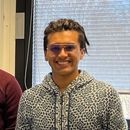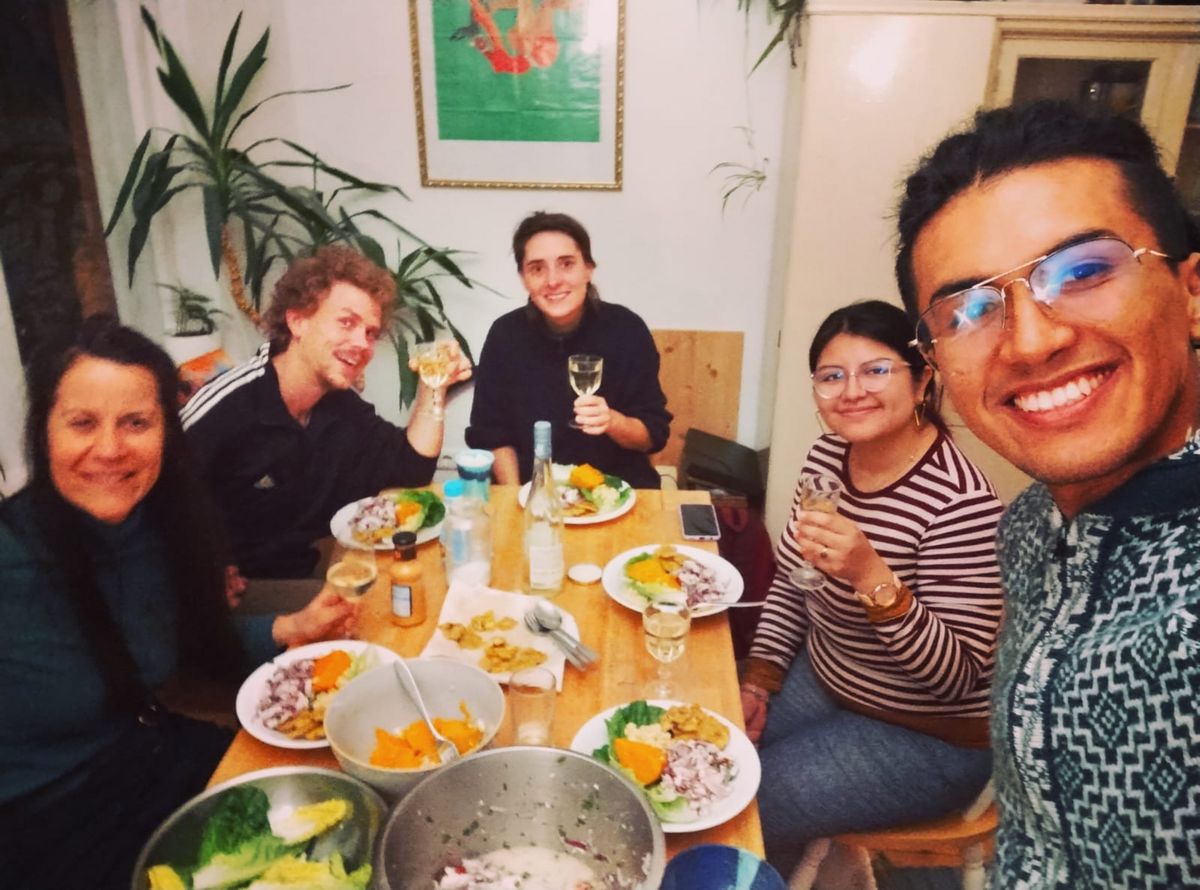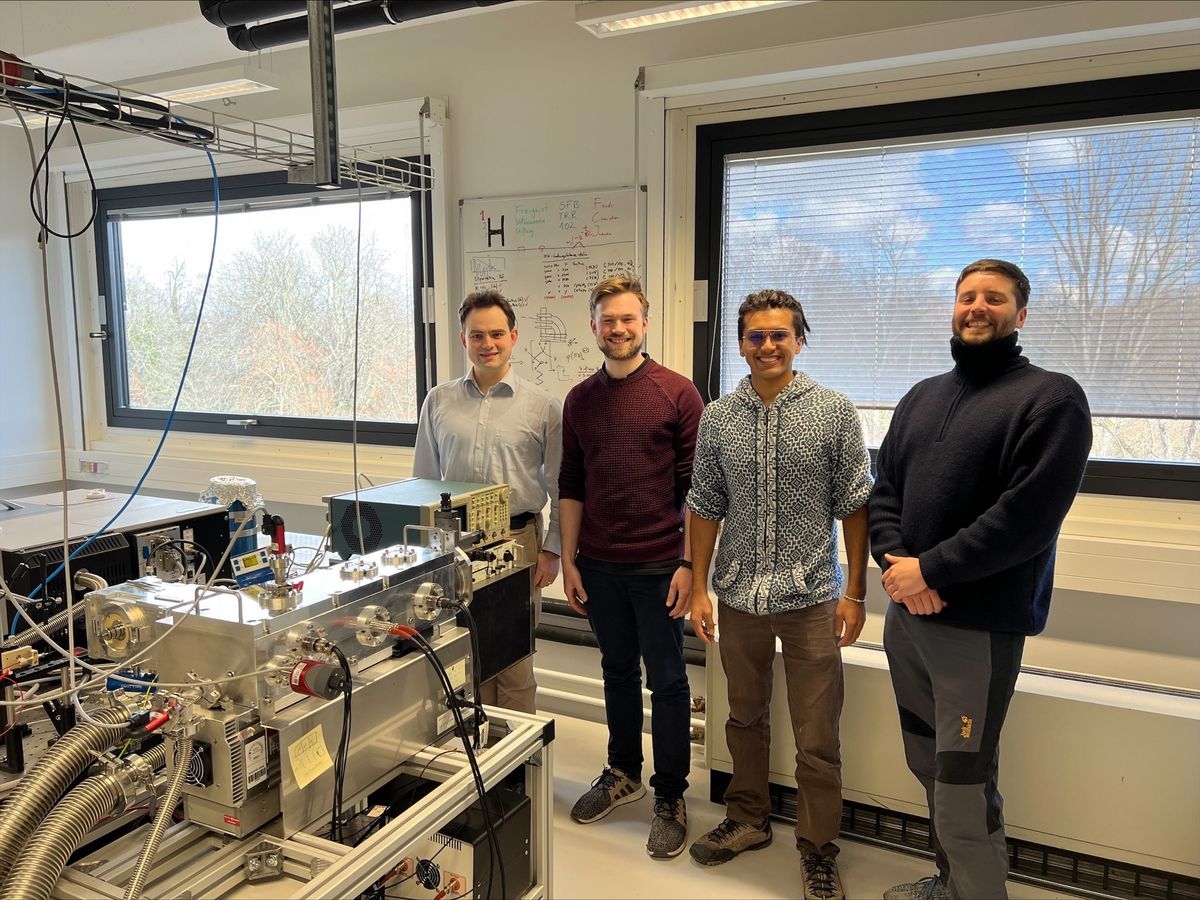“Chemistry in Leipzig offers me unique opportunities”
Faces of Leipzig University: Jaime Tamayo
Peruvian Jaime Tamayo has been doing an internship in Dr Jonas Warneke’s Chemistry of Reactive Intermediates junior research group since mid-February. The 29-year-old will be in Leipzig for three months. “Gesichter der Uni Leipzig” (Faces of Leipzig University) is a regular series introducing the people behind the countless activities, both large and small, that go on at the University every single day – in research, in teaching, in administration, or – as in today’s case – in studying. Today we present the visiting international student.

It is a very special topic and I can only carry out this project in Leipzig.
Name:Jaime Tamayo Ramos
When and where were you born? I was born in Cajamarca, Peru on 30 March 1994
Home university: National University of San Marcos (UNMSM) in Lima
Subject area: Natural sciences
What I study: Chemistry
At Leipzig University I’m visiting: Faculty of Chemistry and Mineralogy, Wilhelm Ostwald Institute of Physical and Theoretical Chemistry, Chemistry of Reactive Intermediates junior research group (under Dr Jonas Warneke)
Internship duration: 13 February until 10 May 2023
Mr. Tamayo, what made you decide to do your internship at Leipzig University?
Dr Jonas Warneke’s research group specialises in the chemistry of molecular fragment ions and their application in ion soft-landing. This opens up unique approaches to the synthesis of new and unique compounds in layers on surfaces. It is a very special topic and I can only carry out this project in Leipzig. I am working with two doctoral researchers. We are studying the bonding of polyhedral boron compounds, which form highly reactive ions in the ion soft-landing instrument, with peptides. This provides interesting insights into the reaction mechanisms of highly reactive ions.
What do you like most about your current work?
The possibility of discussing chemistry and learning new techniques from highly qualified PhD students.
How did your contact with Leipzig University come about?
I am here through the funding organisation Research Experience for Peruvian Undergraduates (REPU). With its international network, it arranges internships for Peruvian students at the most renowned universities worldwide. Dr Warneke had already been in contact with REPU. That’s how the opportunity for my internship came about.
What was the most difficult thing about preparing for your stay in Germany?
Although I am supported by REPU, it was a long process to get the funding. I had to write to a lot of people at my home university and ask them questions.
Is there anything you particularly like about the city of Leipzig?
There are several things I like about the city of Leipzig, but most of all the transport system, because it is very well connected and very punctual. Also, it is safe to ride a bike, unlike in my home town.
Where do you live in Leipzig and how do you like it?
I live near the stop Stannebeinplatz in Schönefeld-Abtnaundorf. It is a quiet neighbourhood. There is a supermarket two blocks from my flat where I usually do my weekly shop. My flat is on the fourth floor, so from my window I can see the railway tracks and a row of gardens where, until recently, the snowflakes at sunrise painted a winter landscape I don’t know from home. On sunny days I like to watch the flaming sunset over Leipzig.
Can you tell us about something typical from your home country?
Peru is a country located in South America and has a rich culture with many unique traditions and customs. One typical thing from Peru is its cuisine, which is known for its diversity and flavours. One of the most popular dishes from Peru is ceviche, which is a seafood dish made from raw fish marinated in citrus juices, such as lime or lemon, and seasoned with chili peppers and onions. It is typically served with corn, banana chips and sweet potatoes and is a staple dish in Peruvian cuisine.
Another typical thing from Peru is the traditional dance of marinera. It is a partner dance that originated in the coastal regions of Peru and is performed at many festivals and events. The dance is characterised by its elegant and graceful movements and colourful traditional dress worn by the performers.
Peru is also home to many archaeological sites, including Machu Picchu, which is one of the Seven Wonders of the World. Machu Picchu is an ancient Inca city that sits atop a mountain and is surrounded by stunning scenery, including the Andes Mountains and the Amazon rainforest.
What do you like to do in your free time?
In my spare time, I enjoy activities such as reading sci-fi literature, attending science conferences and seminars, participating in science-related social groups or clubs, researching topics of interest, or exploring nature by walking and observing scientific phenomena in the natural world. I also enjoy pursuing other interests such as swimming, listening to music, looking at art, and meeting new people and spending time with friends or family over a drink or meal.
When you were a child, what did you want to be when you grew up?
When I was a kid, I liked playing football with my classmates and I didn’t worry about the future. However, I remember I had a book called Atlas, which was about the stars and space, and I spent a lot of time reading it. I could say that I have felt a certain passion for science ever since, although I certainly never imagined that I would end up being a chemist.
Do you have a motto in life that helps you through tough times?
Yes, in tough times I usually think that the human species is very resilient and that losing streaks always end. I just have to be patient and keep going, even if it’s slow, even if I don’t have reasons or I lose motivation, I know that I have to keep going a little bit longer. “To see the rainbow, you must endure the rain.”
Thank you.
Interview conducted by Katrin Henneberg
Universidad Nacional Mayor de San Marcos and Leipzig University revitalize relationships in chemistry
A cooperation agreement between the Universidad Nacional Mayor de San Marcos (UNMSM) and Leipzig University has been in place since 1999. Until a few years ago, there were also close ties in the field of chemistry: “The fact that a student from UNMSM is now doing an internship with us coincides with the revival of relations,” says Dr Jonas Warneke.
In September last year, the rectors Eva Inés Obergfell and Jeri Gloria Ramón Ruffner de Vega met with other university representatives to discuss possible forms of future cooperation. One concrete result was the participation of Leipzig’s chemistry department in an ongoing DAAD application for financial support for a 15-member delegation of UNMSM students to Leipzig University.
“Cooperation and exchange are important for the scientific community, which is why we are keen to involve students from non-European and non-US universities in our research and the associated structural opportunities at our university,” Warneke emphasises. In the laboratory of his junior research group, Jaime Tamayo is supervised by doctoral researchers Kay Antonio Behrend and Sebastian Kawa. “During his time with us, we want Jaime to acquire a sound basic understanding of analytical mass spectrometry and to gain practical experience in the use of vacuum equipment – in particular our ‘ion soft-landing’ instruments.” He will also receive support in the area of data evaluation and visualisation to help him present experimental data in the best possible way. “Such exchanges are a unique opportunity to contribute to the training of a new generation of scientists in other parts of the world.”This aligns well with the basic idea of Peru’s REPU programme. “Our vision is to build a supportive and globally connected community of highly qualified Peruvian STEM professionals who can collaborate on various initiatives to promote the advancement of science and technology in Peru,” says Dr Daisy Unsihuay, who heads the chemistry department at REPU. It was there that Jaime was chosen for funding because he demonstrated “not only excellent academic performance, but also a lot of enthusiasm” to expand his research skills. Daisy Unsihuay personally believes that this is possible at Leipzig University. “I have followed Jonas Warneke’s career closely,” she explains. “That is why I am aware of the first-class research he is doing in Leipzig. It seems to me to be a stimulating environment for our students.”
Katrin Henneberg


Comments
No comments found!